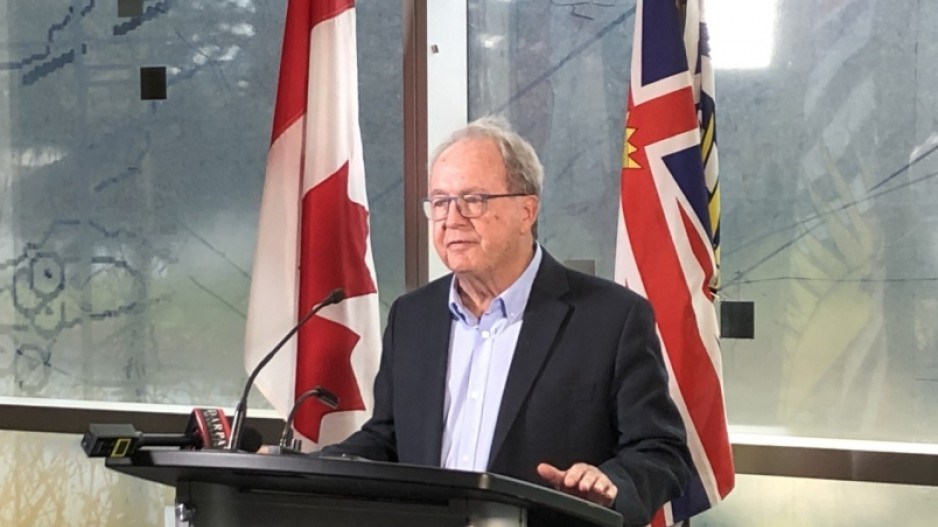Surrey’s mayor is keeping his lips sealed as to whether he’ll continue to have his bylaw officers issue Uber drivers fines as the city awaits the formation of an inter-municipal licence for ride hailing, which could still take months.
Doug McCallum is citing an injunction filed by Uber last week against the City of Surrey for why he won’t speak to the controversial ticketing tactic.
Such proactive bylaw enforcement is rare and sparked much interest in the media and the public over the past week. McCallum announced Monday that the city had been fining Uber $500 per day for operating without a business licence. He had said, then, that officers would be directed to augment their enforcement against drivers from warning tickets to $500 fines as well.
The legality of such enforcement is being questioned, if not rebuked, not just by Uber but by the provincial government and legal experts. The city is using a bylaw (that businesses shall not operate without a licence) contrary to provincial legislation (that states no city may not license, or block, ride hailing companies), which violates the Community Charter, lawyer Dean Davison told Glacier Media this week.
McCallum is now endorsing an inter-municipal license for ride hailing companies so long as measures are taken to ensure taxis and ride hailing vehicles have the same requirements and fees for the license, among other issues.
McCallum stated to media Friday that the regional Mayor’s Council, which oversees regional transportation planning, endorsed to “urge the province and Passenger Transportation Board to level the playing field between taxis and transportation network services (TNS) by reviewing taxi boundaries, fleet caps and insurance requirements, and ensuring TNSs provide accessible services for customers in mobility devices such as wheelchairs and scooters.”
“I have not budged from my position that a level playing field must be in place for ride-hailing and taxi companies to compete in. My fight is about ensuring fair competition in a highly regulated industry. The IMBL approved by the Mayors’ Council today levels the playing field and it has my support,” stated McCallum.
As Uber threatens legal action in response to the levied fines and continues to operate in Surrey, Lyft has chosen not to while licensing issues are resolved.
Lyft stated Friday it accepts the process.
“We are pleased that the Working Group and the Mayors’ Council agreed upon an interim inter-municipal business licence (IMBL) framework that will best serve the region’s residents and visitors.” said Sophia Cote, public policy manager for Western Canada.
“At Lyft, our mission is to improve people’s lives with the world’s best transportation, and we are optimistic that this draft bylaw will allow us to offer riders and drivers a more seamless transportation experience that reflects how people travel within the region.”
Vancouver has already established a licensing model. The city charges $155 per company and $100 per vehicle plus a 30-cent “curb access fee” between 7 a.m. and 7 p.m. Meanwhile, the Tri-Cities have agreed to a sub-regional licence.
Surrey charges over $400 per taxi, according to McCallum.



